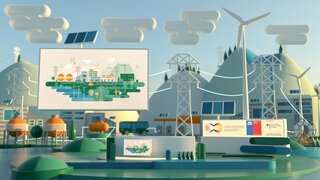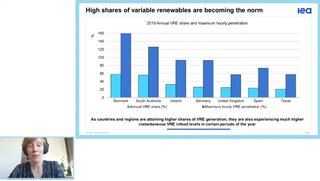Energy Digitalization in Chile
Study "Prospection in Energy Digitalization" launched in March 2021

The digital revolution is happening in all sectors. Although some applications of digital technologies are more evident to users than others (i.e., smart phone apps), energy is one of the areas that haves benefitted the most by this revolution. The energy sector has seen an expansion in possibilities, transitioning from an industry of traditional services to a highly complex multi-actor system. Today, we hear about renewable energies, smart grids, prosumers, smart cities, and many other terms that could not have been imagined without those technological advancements. Moreover, the energy sector faces the big challenge of moving towards a consumer-centric (or end-user-centric), paradigm.
The energy sector presents an interesting opportunity to create value by combining digital technology, people, and business strategy, as well as reducing carbon emissions through the way we produce and consume electricity, safeguarding the planet for future generations. We hope that digitalization will become a fundamental factor for the energy transition and an enabler of industrial trends related to decarbonization and decentralization.
This study was carried out by the Energy Centre of the University of Chile on behalf of the Ministry of Energy and the Deutsche Gesellschaft für Internationale Zusammenarbeit (GIZ) in the framework of the Energy Partnership Chile-Alemania, which is supported by the German Federal Ministry for Economic Affairs and Climate Action (BMWK).
Review our International Webinar, which took place on March 24, 2021.
Key Questions
- What problems can a digitalized energy sector solve?
- How can digitalization play a role in a sustainable energy transition?
- What are the main challenges the digitalization process faces in Chile?
- What are the experiences around the world in this matter?
- Where are we on our way to accomplish the desired level of digitalization?


Downloads
- "Prospection in Energy Digitalization" (5 MB, PDF)
- Executive Summary (566 KB, PDF)
- Factsheets Digitalization in the Energy Sector (8 MB, PDF)
- Prospection in Energy Digitalization in Chile (5 MB, PDF)
- Carbon Neutrality and NDCs (Chilean Ministry of Energy) (890 KB, PDF)
- Factsheets about digital applications (8 MB, ZIP)